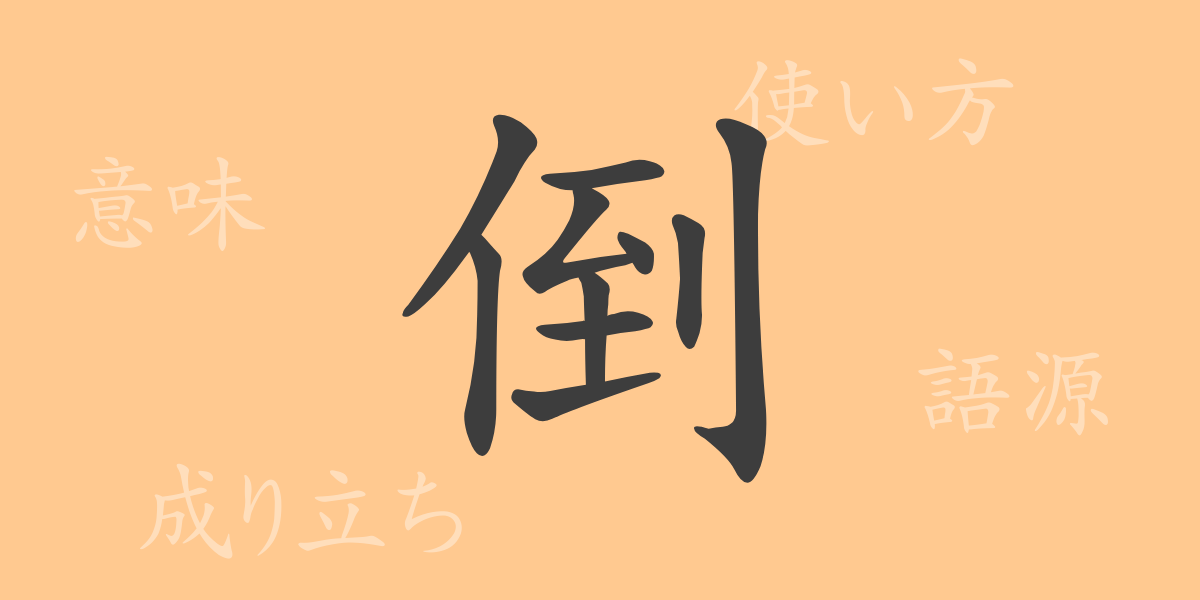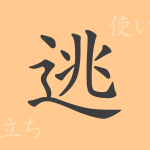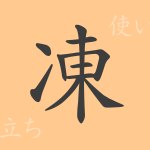The power of a single Kanji character can evoke the history and culture it embodies. The Kanji ‘倒 (とう)’ used frequently in everyday life in Japan is no exception. This article delves into the etymology, meanings, and usage of ‘倒’, exploring the secrets it holds and its allure.
Origins of ‘倒 (とう)’
The Kanji ‘倒’ originated from ancient China, depicting the act of a person falling over. Initially representing the unstable upper body of a person about to fall, it evolved over time to its current form. The meaning of ‘to fall’ associated with ‘倒’ can be intuitively understood from its form.
Meaning and Usage of ‘倒 (とう)’
‘倒’ primarily conveys meanings like ‘to fall over’, ‘to turn upside down’, or ‘to become inverted’. It also extends to mean ‘to fail’ or ‘to destroy’. Its usage ranges from describing the physical action of falling to metaphorical applications, such as describing the failure of organizations or plans using terms like ‘fall down’.
Reading, Stroke Count, and Radical of ‘倒 (とう)’
Here are the details on the reading, stroke count, and radical of ‘倒’.
- Readings: On’yomi ‘トウ’, Kun’yomi ‘たお.れる’, ‘たお.す’
- Stroke Count: ‘倒’ consists of 10 strokes.
- Radical: The radical is ‘亻(にんべん)’, associated with humans and actions or states related to people.
Phrases, Idioms, and Proverbs Using ‘倒 (とう)’
There are many idioms, phrases, and proverbs that include ‘倒’, each imbued with profound meanings. Some examples are provided below:
- 倒錯 (とうさく) – A reversal of normal psychology or behavior.
- 倒産 (とうさん) – The failure of a business to continue operations due to financial problems.
- 倒置 (とうち) – A rhetorical device where the normal order of words is reversed in writing.
- 倒幕 (とうばく) – To overthrow the shogunate, especially referring to the movements at the end of the Tokugawa shogunate.
- 倒れるより立つが易し – It’s easier to keep trying from the start than to get up after a failure, a proverb indicating that perseverance is simpler than recovery from defeat.
Conclusion on ‘倒 (とう)’
The Kanji ‘倒’ evokes a range of meanings from its shape, widely used in Japanese. From direct implications of falling to abstract concepts in economics and psychology, its applications are diverse. It also appears frequently in idioms and proverbs, reflecting aspects of Japanese thought and culture. Understanding this Kanji allows us to appreciate the profound meanings behind words more richly.

























